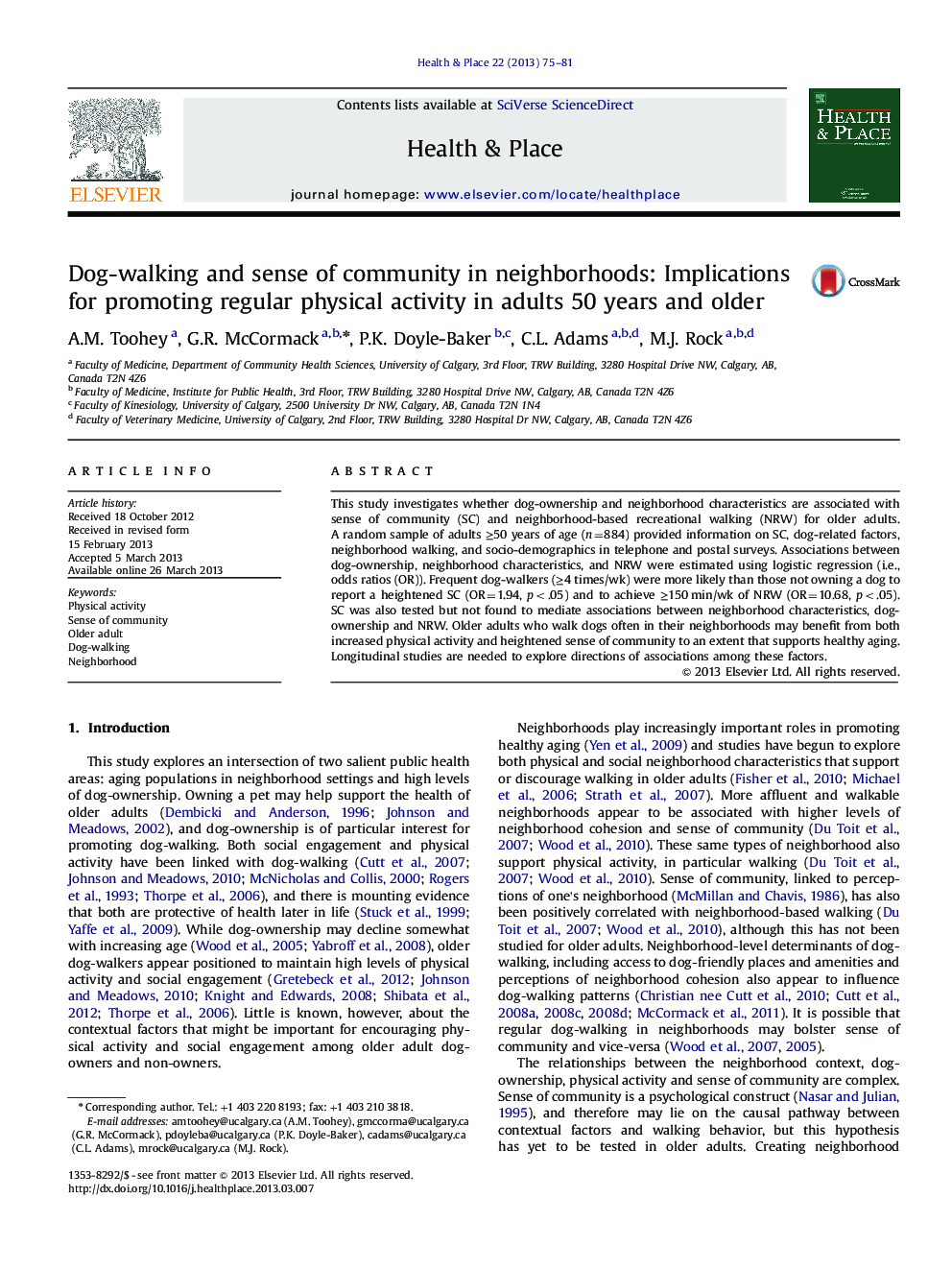| Article ID | Journal | Published Year | Pages | File Type |
|---|---|---|---|---|
| 7459135 | Health & Place | 2013 | 7 Pages |
Abstract
This study investigates whether dog-ownership and neighborhood characteristics are associated with sense of community (SC) and neighborhood-based recreational walking (NRW) for older adults. A random sample of adults â¥50 years of age (n=884) provided information on SC, dog-related factors, neighborhood walking, and socio-demographics in telephone and postal surveys. Associations between dog-ownership, neighborhood characteristics, and NRW were estimated using logistic regression (i.e., odds ratios (OR)). Frequent dog-walkers (â¥4 times/wk) were more likely than those not owning a dog to report a heightened SC (OR=1.94, p<.05) and to achieve â¥150 min/wk of NRW (OR=10.68, p<.05). SC was also tested but not found to mediate associations between neighborhood characteristics, dog-ownership and NRW. Older adults who walk dogs often in their neighborhoods may benefit from both increased physical activity and heightened sense of community to an extent that supports healthy aging. Longitudinal studies are needed to explore directions of associations among these factors.
Related Topics
Health Sciences
Medicine and Dentistry
Public Health and Health Policy
Authors
A.M. Toohey, G.R. McCormack, P.K. Doyle-Baker, C.L. Adams, M.J. Rock,
